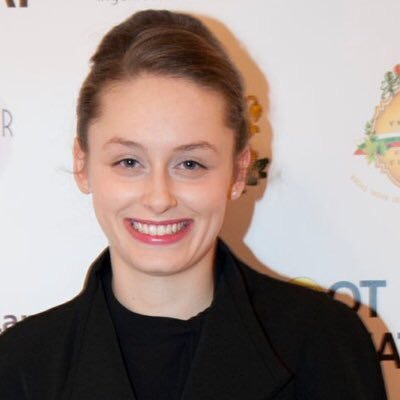Last evening’s French presidential debate was unprecedented: never before had such confrontation between the presidential candidates occurred before the first round of voting, which will occur on April 23. (On May 7 a second round will occur between the two candidates with the most votes in the first round.) With five candidates and more than three hours of lively debate, there is no clear winner yet, but it is not certain French citizens will learn about these campaigns more clearly as lots of themes were addressed so briefly.
The debate was organized in three stages and asked important questions: What should the social model for France be (education, environment, security, immigration, etc.)? Which economic model should France use (taxation, working time, and unemployment)? What is France’s position in the world (European integration, relations with Russia and the United States, and France’s role in fighting international terrorism)?
It is worth remembering a French presidential election is not won over foreign policy, even if the French President is the head of state. While the candidates have taken clear positions on Europe, other major diplomatic options outlined in their policy programs remain very general. They list threats and explicitly or implicitly recall the major principles of independence and balance inherited from General de Gaulle, who founded France’s current Fifth Republic in 1958 and served as president. The war in Syria and relations with Russia are the most divisive subjects for parties on the left and right, and positions on these topics reveal the candidates’ foreign policy views the most.
In brief, foreign policy and terrorism topics were discussed for twenty minutes. The leftist most like Britain’s socialist Labour leader Jeremy Corbyn, Benoît Hamon (candidate for the Socialist Party, PS) points the finger at Trump’s election and Putin’s pretensions. He claims France is the only country with comprehensive military deterrence. Europe needs a defense initiative that Americans no longer guarantee, he said.
For the far-right firebrand Marine Le Pen (candidate for the National Front, FN), no one should decide for France. The military’s future is key. Spending 2 percent of GDP on the military should be increased to 3 percent. This increase must begin immediately and reach its 3 percent goal by the end of the next President’s five year term.
For the Thatcherite François Fillon (candidate for the Republicans), Le Pen’s defense policies “are promises that will not be kept. These are billions that you do not have.”
For the radical outsider Jean-Luc Mélenchon (candidate for La France Insoumise, which he founded in 2016), a defended Europe is the Europe of war. He wants to be the president of peace. Europe must hold a security conference and negotiate borders from the Atlantic to the Urals. France is a universalist power. But Mélenchon believes it would be madness to extend the nuclear umbrella for 28 European countries.
The left-of-center Emmanuel Macron (candidate for En Marche!, which he founded in 2016) recalled that Europe is the great absentee of the global security debate and that he is the only one to comply with European demands. An idealist on many fronts, he casts himself as the maverick outsider in the wake of Donald Trump’s victory in the United States. Macron wants to defend France’s economic independence and its national interests. His policy would be inscribed in a diplomatic roadmap that guides France’s policy. “It’s empty”, complains Marine Le Pen with her blue-eyed glare. “You did not say anything!” Later she said, “We do not know what you want.” Macron retorted, “I do not want to co-operate with Putin.”
Emmanuel Macron stretches his arms out in the form of a cross, and François Fillon places his hand on his heart. Macron claims transcendence in politics: “Politics is mystical.” Fillon, a follower of evangelical parables, answers: “I am a Gaullist and a Christian.”
On substance, the religious novelties are not flagrant because religious themes have imposed themselves on French political debates for thirty years. But on form, the two main and leading candidates’ positions give the presidential campaigns some unprecedented Christian accents.
This may seem paradoxical. In French parishes many Christians are meeting to reflect on the political stakes and in particular those of the approaching presidential election. And yet these discussions will not lead to positions in favor of this or that candidate. Those who consider public debate a priority will ask: What is the point, and is it worth it?
When making political choices, there are a number of heavy ethical points which, in principle, are the subject of consensus among Christians. Overall, these criteria are the best possible: respect for human dignity, the search for peace and all that promotes it, and respect for religious freedom. Then come more technical points like the economy, on which it is very legitimate that there are diverse approaches. Some may reasonably support economic and social progress in a liberal manner, and others may approach the topic differently. But in either case, the Church does not decide economic options and does not have to do so.
In reality, if French Christians do not endorse candidates publicly and collectively—both words are important—under the banner of a person or party, it is because they take politics very seriously. First, it must be subject to an open reflection of the partisan stakes around the concerns that lie at the heart of the Christian faith: the struggle for life, human dignity, justice, and peace. It is then, and only then, that each believer will choose in conscience for whom he or she will vote, engage in a party, or stand to be a candidate, knowing that no program can be totally in accordance with the Christian social doctrine.
—
Patricia Schouker is an energy and political risk analyst based in Washington, DC, and an Associate Member of New College at Oxford University. Twitter: @Patricia_Energy.
Photo Credit: Screenshot of First French Presidential Debate on March 20, 2017. From left to right, the candidates are Le Pen, Mélenchon, Hamon, Marcron, and Fillon. Source: France24.






